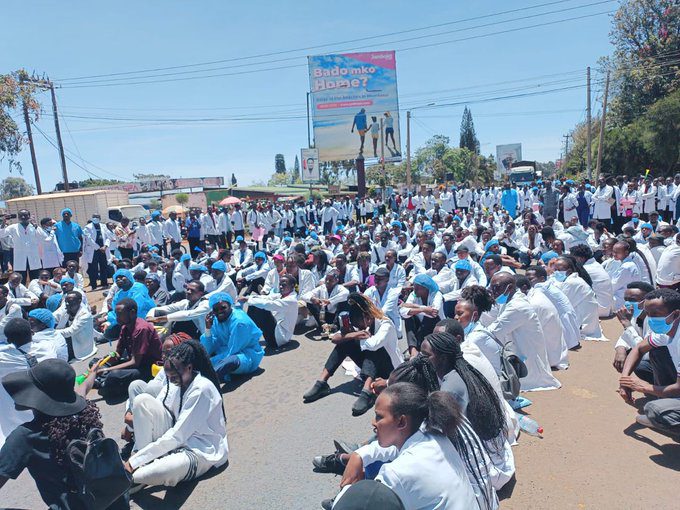Hundreds of hospital doctors in Nairobi protested for better pay and working conditions as a nationwide strike by medics entered its fourth week.
Around twelve riot police in pickup trucks were there to watch over the protest, even though it wasn't allowed by the authorities.
Since March 13, members of the 7,000-strong Kenya Medical Practitioners, Pharmacists and Dentists Union have been on strike to ask for better pay and working conditions, causing problems for health care in 57 public hospitals.
The doctors, wearing white lab coats and making noise with horns and whistles, chanted “solidarity forever” as they marched to the health ministry and blocked the entrance gates.
KMPDU deputy secretary general Dennis Miskellah said, “We are ready to go back to the hospitals, but the government's efforts are not enough to end the human suffering.”
The union recently turned down a government offer that included paying overdue payments from a 2017 agreement and employing trainee doctors with permanent contracts.
In March, a labor court told the union to stop the strike, and last week it set a 14-day deadline for negotiations to end the problem.
Kenyan President William Ruto has declined to make further concessions, since he has been working on cutting costs since he took office in 2022.
He mentioned, “We cannot keep spending money that we don't have.”
“I am informing the doctors that we appreciate the service they give to our nation, but we need to live within our means.”
Low salaries and bad working conditions have caused many Kenyan medics to leave for other African countries and beyond.
In 2017, Kenyan doctors had a 100-day national strike that caused public hospitals to close and patients to be unable to get basic medical care.
During the strike, many patients died because they couldn't get treatment, but it ended after an agreement was made.
However, the doctors say the government didn't keep to some parts of the deal, which led to the current strike.
AFP



